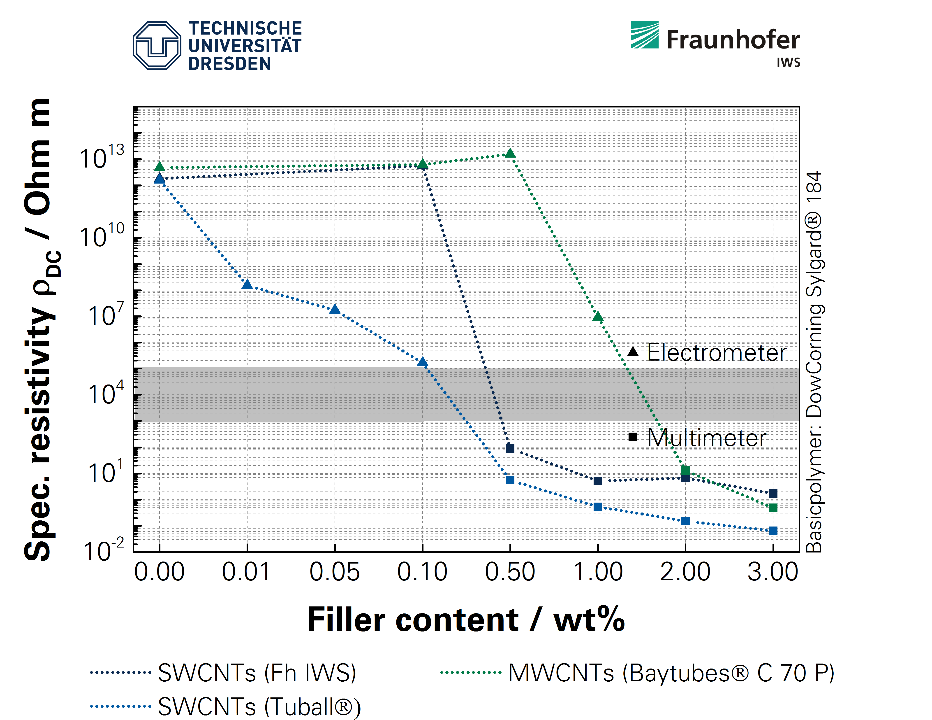Silicone elastomers filled with different electrically-conductive additives were the main focus of the joint R&D project of TU Dresden and Fraunhofer IWS. The R&D project is aimed at the development of new materials for highly innovative applications. TUBALL™ - single wall carbon nanotubes manufactured by OCSiAl were one of the materials amongst other types of nanoadditives such as MWCNTs and SWCNTs from other manufacturers
The project is far from completion, however the first results for TUBALL™ are promising. By adding only 0.01 wt% of TUBALL™ the specific resistance drops from 10^12 to 10^8 Ohm m. Adding 0.05 wt% of TUBALL™ results in a specific resistance of 10^7 Ohm m. Compounds which show specific resistance in this range reveal antistatic properties. For this application, TUBALL™ shows an impressive advantage. Other additives require 20 to 50 times higher concentration for achieving such a reduction in resistance levels.

Silicone elastomers are widely used in markets like automotive, healthcare, energy and consumer goods amongst others. Here, TUBALL™ modified silicone elastomers showing antistatic properties might open up new possible applications. Furthermore, it can be reasonably assumed that the performance of TUBALL™ is not only superior for silicone elastomers but also for other polymer matrices.
